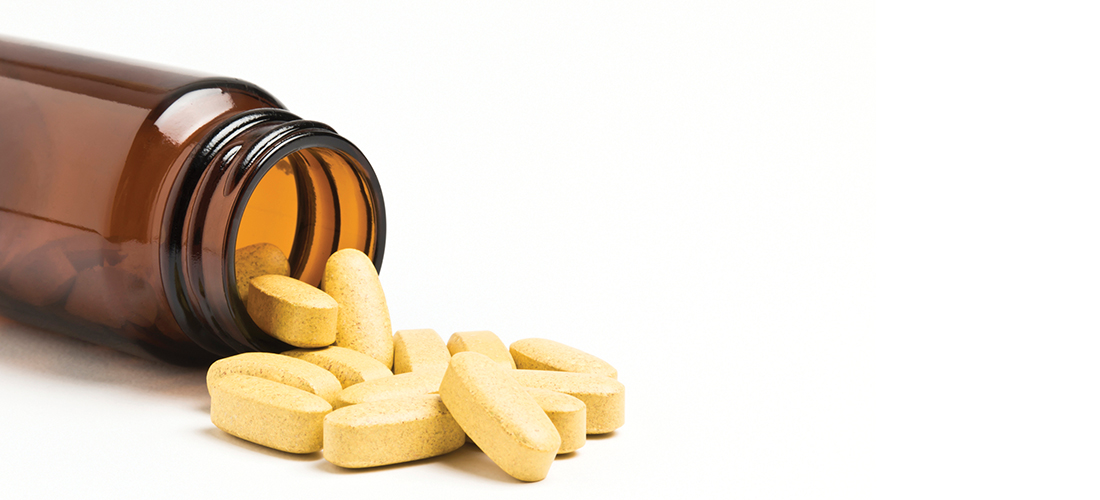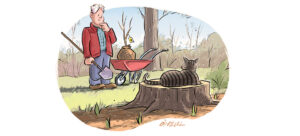
Here’s to the Bs
A supplement for a healthy life
By Karen Frye
Author and nutritionist Adelle Davis believed that through a healthy diet and taking the right supplements for your body, you could achieve a long life. In the 1950s she was one of the most highly respected authorities on healthy food and vitamins. One of her best-selling books, Let’s Have Healthy Children, would be a wonderful read for anyone today.
One of her most highly recommended vitamins is the B-complex — a combination of all the B vitamins in one tablet. Each B vitamin (there are a lot of them) has an extremely important function in the body. Taken together they give you the proper proportions to address any deficiencies. The food that contains the richest of all the B vitamins is brewers yeast or nutritional yeast. It’s easy to add to foods, juices or smoothies and is an excellent food for vegan and vegetarian diets. Before we had processed food (and white flour), when we relied on more natural whole grains, we could get adequate nutrients in our foods. Today, however, the food isn’t enough and a supplement can make a huge difference.
The B vitamins are very important in the function of a healthy nervous system. If you are plagued with fatigue, B vitamins can increase your energy and stamina. B deficiencies can be the root cause of many skin and gastrointestinal issues. Adequate amounts of B vitamins can help alleviate anxiety and depression. There are many other advantages to keeping enough B in your diet. Deficiencies are common especially in the elderly. Even Alzheimer’s disease can be improved by adding B complex to the diet.
Though the Bs work especially well as a team, they also have specific benefits individually. It is very common for folks to have low B12. This can be found in a routine blood test with your doctor. Folate, needed to make red and white blood cells, is another B vitamin prone to being low.
And, while not scientifically proven, there have been personal testimonials of people using B1 to repel mosquitoes and other biting insects effectively. It’s been used with success among hikers, gardeners, athletes and, of course, those of us who just like to sit outside and enjoy nature. I’m sure you or someone you know can be outdoorsy and not be affected by annoying insects. They may have enough Bs in their system to emit an odor mosquitoes don’t like. On the other hand, perhaps you’re the one the bugs have decided to feast on and get covered in nasty bites. Just add B vitamins (or B1 alone) and you will be amazed. It’s a safer alternative to repellents containing DEET.
Some of the richest food sources of B1 thiamine are egg yolks, brown rice, most nuts, legumes, asparagus, broccoli, Brussels sprouts, plums, prunes, and nutritional yeast. If you decide that you want to take a supplement of B1, you can get it in a B complex or take it alone. Just make sure you get enough to effectively repel the bugs. The recommended amount of B1 to use is 25-50 milligrams several times a day.
I have been adding nutritional yeast to my dog’s food for years as a natural flea repellent, too. Dogs love the taste, and it even slows down the aging process — for us and our pets. PS
Karen Frye is the owner and founder of Nature’s Own and teaches yoga at the Bikram Yoga Studio.





